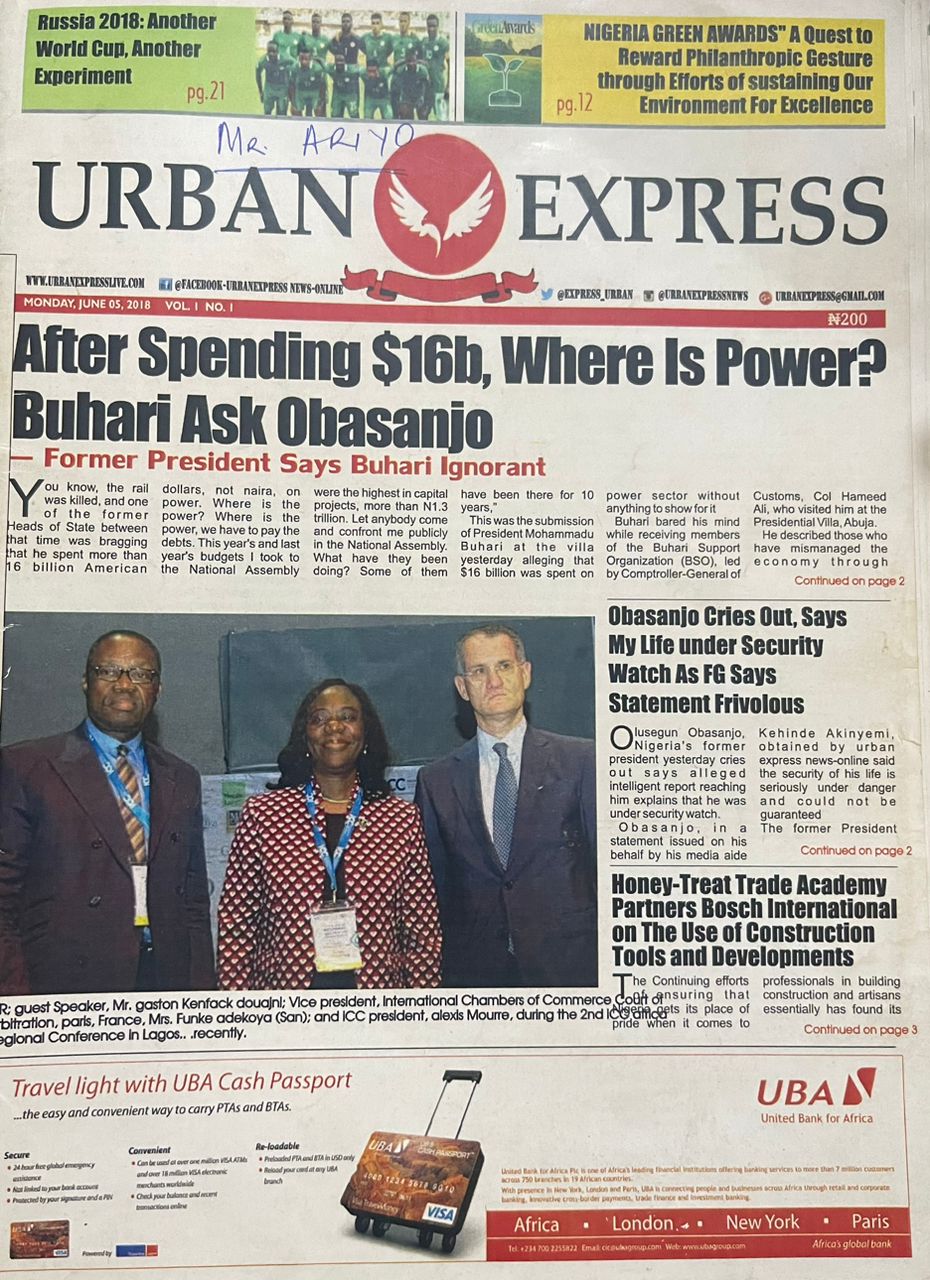Hot News
-
Quick Links
- Entertainment
- Business
- Politics
Olusegun ARIYO Reprieve may be a homecoming adventure for the inhabitants of Taraba and Benue communities, as Governor Agbu Kefas of Taraba State and Governor Hyacinth Alia of Benue State have assured displaced residents in southern Taraba of a strengthened security presence, immediate relief assistance, and sustained government support to facilitate their safe return to their ancestral homes. The pledge…
Taiwo POPOOLA The Naira recorded the highest single-day depreciation against the United States dollar at the official foreign exchange market to resume the week on a negative note on Monday. The Central Bank of Nigeria’s data showed that the Naira dropped to N1,378.03 per dollar as currency trading resumed on Monday, down from N1,363.39 recorded last week Friday. This means…
Olaleye IDOWU Hull City have included Semi Ajayi in their squad for tonight’s Sky Bet Championship clash against Ipswich Town, Urban Express News reports. Ajayi has recovered from the hamstring injury he sustained at the 2025 Africa Cup of Nations in January.https://urbanexpresslive.com/epl-real-reason-pedro-neto-under-fire-as-chelseas-top-four-hopes-takes-hit/ The 32-year-old is now set to make his first appearance for Hull City this year. The centre-back last…
Olaleye IDOWU Barcelona midfielder Pedri has named Kylian Mbappe as the player…

The reader will have a feel of who the late Ariyo was and how the textile world has evolved since his passing on June 14, 1993, and will be in a position to determine how the Nigerian textile industry should further evolve to honour his memory for the great sacrifices he made to the country’s textile sector.
Olaleye IDOWU Arsenal legend Ian Wright has admitted he is worried…
Olaleye IDOWU Benfica manager Jose Mourinho has told Gianluca Prestianni that his…
Olaleye IDOWU Arsenal on Sunday made three records after beating Chelsea 2-1…
Olaleye IDOWU Barcelona striker, Robert Lewandowski, will not be able to play…
Olaleye IDOWU EPL: How Iwobi Finds the Net Again As Fulham Overcome…
Taiwo POPOOLA The president of the United States, Donald Trump, has claimed…
Olaleye IDOWU Former Arsenal star, Paul Merson, has suggested that Eberechi Eze…
Olaleye IDOWU Paris Saint-Germain has secured a key advantage over Chelsea before…

Seun EMMANUEL Nollywood actress Evans Okoro has called out her colleague, Ekene Umenwa, over an alleged claim that she is living with the Human Immunodeficiency Virus (HIV). The controversy arose after Evans’ name reportedly appeared on a list of Nollywood stars allegedly gossiped about by Ekene to a UK-based Nigerian nurse, Adanma Waller. Reacting to the development in a video shared on her Instagram page, Evans expressed disbelief and demanded Ekene’s side of the story. She said: “E get something wey I see for social media right now. My name dey for one list; dem talk say Evans Okoro carry one thing for body wey dey heavy people for mouth to talk. “Ekene Umenwa, you add me for your list? Is that what you said, or the devil just wants to use https://urbanexpresslive.com/how-efcc-arrested-20-for-involvement-in-electoral-fraud-during-fct-council-poll/una bring me down? I defended you ooo. I said let’s hear the Ekene side of the story, but seeing my name there as somebody wey dem talk say she carries HIV sickness for body… “Ekene, if na weytin you talk, may God punish you and your whole generation, including your father, your mother, your husband. But if no be, weytin you talk, may God punish those people that fabricate this lie and their generation because my mother is crying right now,” Evans stated. The incident follows a separate controversy in which Destiny Etiko dragged Ekene for allegedly accusing her of beating her mother.
Taiwo POPOOLA A former senator, and the daughter of former Nigerian President Olusegun Obasanjo, has insisted that she’s not in the Ogun governorship election race to step down for another…

The reader will have a feel of who the late Ariyo was and how the textile world has evolved since his passing on June 14, 1993, and will be in a position to determine how the Nigerian textile industry should further evolve to honour his memory for the great sacrifices he made to the country’s textile sector.

Sign in to your account